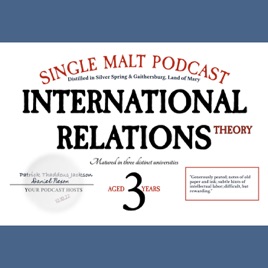
Advertise on podcast: Whiskey & International Relations Theory
Rating
4.9 from
Country
This podcast has
33 episodes
Language
Explicit
Yes
Date created
2020/02/05
Average duration
98 min.
Release period
54 days
Description
Patrick and Dan work their way through a piece of international-relations scholarship. And drink whiskey.
Podcast episodes
Check latest episodes from Whiskey & International Relations Theory podcast
Status? You Just Met Us!
2023/10/15
[audio updated to fix a mixing error]The second installment of our live taping at the British International Studies Association annual convention in Glasgow is a "Whisky Optional" roundtable on status and international-relations theory. Our guests are: Ali Bilgic of Loughborough University, Michelle Murray of Bard College, Rohan Mukherjee of the London School of Economics, and Steven Ward of the University of Cambridge. The taping was sponsored by the Clydeside Distillery.Related readings: Ali Bilgic, Turkey, Power and the West: Gendered International Relations and Foreign Policy; Michelle Murray, The Struggle for Recognition in International Relations: Status, Revisionism, and Rising Powers; Rohan Mukherjee, Ascending Order: Rising Powers and the Politics of Status in International Institutions; and Steven Ward, Status and the Challenge of Rising Powers. Some articles mentioned include (implicitly or explicitly) include: Ward, "Lost in Translation: Social Identity Theory and the Study of Status in World Politics," Larson and Shevchenko, "Status seekers: Chinese and Russian responses to US primacy," and Musgrave and Nexon, "Defending Hierarchy from the Moon to the Indian Ocean: Symbolic Capital and Political Dominance in Early Modern China and the Cold War." An important edited collection on status and international politics is Status and World Politics, eds. Paul, Larson, and Wohlforth.The classic "chickens" article is Ivan D. Chase, "Social Process and Hierarchy Formation in Small Groups: A Comparative Perspective."
more
Social Forces, States, and Clydeside Whisky
2023/08/18
Robert Cox's landmark article, "Social Forces, States and World Orders: Beyond International Relations Theory," appeared in the journal Millennium in 1981. Among other things, it introduced the distinction between "critical" and "problem-solving" theory to international-relations scholars. But this isn't just any old episode where Patrick and Dan ramble their way through some decades-old academic article. No, it's the first-ever live recording of Whisky and IR Theory, which took place in Glasgow in June at the annual convention of the British International Studies Association. And we had a sponsor: the Clydeside Distillery, which generously provided everyone with drinks... and souvenir whisky glasses.A good time was had by most. If you missed out, we'll be holding another live taping in London in October. More to come.
more
Great Balls of Power
2023/07/17
Back in 2019, Uri Friedman wrote that we "find ourselves—as you will have heard in the corridors of power and conference rooms of think tanks, and read in the government’s strategy documents and the media’s coverage of international relations—in an era of “great-power competition." "As Friedman noted, "great-power competition" has even" achieved hallowed acronym status—GPC..." It's been nearly eight years since the term took off, and international-relations theorists are only just starting to take a close look at its analytical and conceptual dimensions. In this "Whiskey Optional," Ali Wyne, Stacie Goddard, and Jon DiCicco join Dan for a discussion of where, if at all, "GPC" fits into international-relations theory.Works mentioned in this episode include: Ali Wynne, America's Great-Power Opportunity (Polity, 2022); Stacie Goddard, When Right Makes Might: Rising Powers and World Order (Cornell, 2018) & "The Outsiders: How the International System Can Still Check China and Russia," Foreign Affairs (May/June 2022); Jon DiCicco and Tudor Onea, "Great-Power Competition," Oxford Research Encyclopedia of International Studies, 2023; A.F.K. Organski, World Politics (Knopf, 1958); and Daniel Nexon, "Against Great Power Competition," Foreign Affairs (2021).
more
A Long, Strange Trek
2023/05/18
It's our first "actual" installment of Whiskey & IR Theory in Space! We discuss Star Trek: The Next Generation's 'gay rights' episode, "The Outcast," which Dan uses to introduce his students to different modes of "reading" the politics of (and in) science fiction. PTJ and Dan summarize the episode (can you spoil an 30+ year-old TV show?), discuss their own reactions to it, and then Dan talks about how his students respond to it differently now than they did a 10-15 years ago. The two hosts conclude by descending into rambling geekery as they discuss what they'll cover in the second installment of the series. The answer, by the way, is the two short stories that PTJ opens his class with: Ursula K. Le Guin's "The Ones Who Walk Away from Omelas," and N.K. Jemisin's "Those Who Stay and Fight." The Whisky: Port Charlotte CC:01
more
Introducing: Whiskey & IR Theory... in Space!
2023/04/21
Patrick and Dan talk about the newest feature of the podcast: a series in which they combine their long-running seminars on (international) politics and science fiction.In each episode of "Whiskey & IR Theory... in Space!" Patrick and Dan will discuss a book, television episode, or film that they've assigned in classes past. Here, though, they introduce the series by talking about the good, the bad, and the ugly of using popular culture in general — and science fiction in particular — to explore social science and social theory. Works discussed, inter alia, include Jutta Weldes' To Seek Out New Worlds: Exploring Links between Science Fiction and World Politics and Iver Neumann & Daniel Nexon's Harry Potter and International Relations.
more
Are We Living in a Simulation... of Sovereignty?
2023/03/11
PTJ and Dan discuss Cynthia Weber's 1994 book, Simulating Sovereignty: Intervention, the State and Symbolic Exchange. Weber examines "the justifications for intervention offered by the Concert of Europe, President Wilson's administration, and the Reagan-Bush administrations" and analyzes them via a combination of "critical international relations theory and foreign policy analysis." Topics include: why "sovereignty" was so important to critical and constructivist scholars in the 1990s, Jean Beuadriard and International Relations, and the Reagan presidency. Also mentioned in this episode, inter alia, are Andrew Abbott's Time Matters: On Theory and Method, R.BJ. Walker's Inside/Outside: International Relations as Political Theory, and Cynthia Weber's "Performative States" (Millennium, 1998).You can contact us via email, and follow us or DM us on Twitter. You can also buy Whiskey & IR Theory merch at our Zazzle store.Thanks for listening, and if you like the show be sure to leave us a five-star review.
more
Everything is Relational
2023/01/29
It's a nostalgia episode for our two hosts, Patrick and Dan.They tackle Mustafa Emirbayer's 1997 article in the American Journal of Sociology, "Manifesto for a Relational Sociology." According to Emirbayer, "Sociologists today are faced with a fundamental dilemma: whether to conceive of the social world as consisting primarily in substances or processes, in static 'things' or in dynamic, unfolding relations."Was that also true of International Relations? PTJ and Dan certainly thought so back in 1999.Is it still true today? The two may or may not answer this question, but they do work through Emirbayer's article in no little detail.Additional works alluded to in this podcast include Bhaskar, A Realist Theory of Science (1975); Emirbayer and Goodwin, "Network Analysis, Culture, and the Problem of Agency" (1994); Emirbayer and Mische, "What is Agency" (1998); Mann, The Sources of Social Power, Volume II (1993); Pratt, "From Norms to Normative Configurations: A Pragmatist and Relational Approach to Theorizing Normativity in IR" (2020); Sommers, "The Narrative Constitution of Identity: A Relational and Network Approach" (1994); Tilly, Durable Inequality (1998); and Wiener, Contestation and Constitution of Norms in Global International Relations (2018). The Duck of Minerva symposium on norms is available here.ETA: this is now the 4th version (02.08.2023) of the episode; apologies again, we're getting used to new equipment and mixing software.
more
Anarchy vs. The Anarchy
2022/10/11
The University of Chicago's Paul Poast claims that G. Lowes Dickinson was the OG "modern" theorist of international relations—and also an "offensive realists." John Mearsheimer invokes Dickinson in Tragedy of Great Power Politics, but notes that Dickinson vocally supported the creation of the League of Nations. Brian Schmidt pays close attention to Dickinson in his work on the history of the discipline. Andreas Osiander also sees Dickinson's account of anarchy as realist, but emphasizes that Dickinson's argument has distinctive "overtones of moralism and voluntarism" and that "Dickinson hope[s] that [anarchy] might be transcended." Jeanne Morefield offers a nuanced appraisal, arguing that we shouldn't read Dickinson through the idealist-realist frame later popularized by E.H. Carr (see also). Unfortunately, we consulted few of these works before recording the episode, so we unwittingly make arguments that previously appeared in some of this scholarship. We apologize, and hope that listeners go out and read the work that we link to above.We discuss whether or not Dickinson is a "realist" (which is probably the least interesting aspect of his work), and examine parts of The European Anarchy, The International Anarchy, The Causes of War, and lots of other stuff. Dan reiterates his view that structural realists are best understood as "liberal pessimists" and Patrick discusses Dickinson's biography and some of his work outside of the area of international relations.
more
The New Hierarchy Studies
2022/08/09
Scholars of international relations don't agree on much, but they at least agree that anarchy (the lack of a common authority to make and enforce rules) is the defining feature of international politics, right? Not exactly. There's a long history of research that emphasizes the hierarchical character of international relations. Now a new wave of scholarship argues that international-relations theory should move beyond anarchy. Some advocate giving it a downgrade. Others want to banish the concept entirely. What drives the new hierarchy studies? Why is it gaining steam? In this episode, David Lake, Dani Nedal, and Ayşe Zarakol join a "Whiskey Optional" roundtable on the subject of international hierarchy.
more
International Relations in China
2022/06/20
What is the topography of international-relations theory in the People's Republic of China? What is the "Chinese School of International Relations?" Astrid Nordin (King's College, London), Yan Xuetong (Tsinghua University), and Qin Yaqing (Peking University) join the podcast to answer these – and other – questions about Chinese international-relations scholarship.
more
Being Academic and Pandemic Time
2022/04/19
In this “Whiskey Optional” episode, PTJ facilitates a conversation among four colleagues from different countries and different kinds of academic institutions about the current global pandemic – not primarily about research on the pandemic, but about the experience of being an academic during the pandemic. Since part of that experience involves bringing our theoretical predilections to bear on the contemporary situation, we drift back and forth between the pandemic as a scholarly object and the pandemic as an experiential actuality.
more
So a Deputy Foreign Minister and an Academic Realist Walk into a Bar
2022/03/08
In 2014, John Mearsheimer authored a Foreign Affairs article in which he blamed that year's Ukraine crisis on the U.S., NATO, and the EU. The next year he gave a talk on the subject which the University of Chicago uploaded to YouTube.Last week the Russian Ministry of Foreign Affairs used excerpts from Mearsheimer's article and talk as part of its efforts to propagandize in favor of Russia's full-scale invasion of Ukraine. Isaac Chotiner subsequently interviewed Mearsheimer for the New Yorker.For some reason, Patrick and Dan thought it would be a good thing to record an impromptu podcast on the controversy – and to down more whisky than usual during the process. We've managed to cut the discussion down to two hours, but it's not, shall we say, the most organized episode we've done. Topics include specific aspects of Mearsheimer's argument, the importance of skepticism about what government officials tell you, and how academics should present their arguments when engaging in public-facing scholarship. Caveat emptor.Note that this is a corrected version of the original podcast. Dan inaccurately characterized two aspects of the talk. He's added a mea culpa at the start of the episode and edited the discussion accordingly.
more
Podcast reviews
Read Whiskey & International Relations Theory podcast reviews
Waltz, K.
2020/11/29
Awesome
Two of my favorite topics. This is possibly the best podcast ever made.
Gregory S. Sanders
2020/06/08
Good for both broadening and deepening understanding
I've found the podcast to be a great resource both for texts I'm more familiar with and for those that are newer to me. I think it works well in its c...
more
AAS247
2020/04/18
Highly recommended
Excellent podcast for anyone interested in IR theory. Pairs well with the various whiskeys the hosts recommend.
Podcast sponsorship advertising
Start advertising on Whiskey & International Relations Theory & sponsor relevant audience podcasts
You may also like these social sciences Podcasts

4.8
91
486
The Perception & Action Podcast
Rob Gray

4.6
118
1357
Dead Rabbit Radio The Daily Paranormal Podcast
Jason Carpenter
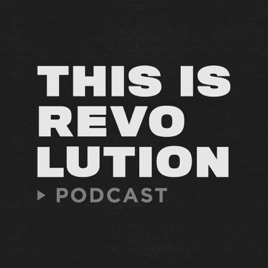
4.8
168
97
THIS IS REVOLUTION >podcast
bitterlake

4.8
110
198
Clearer Thinking with Spencer Greenberg
Spencer Greenberg
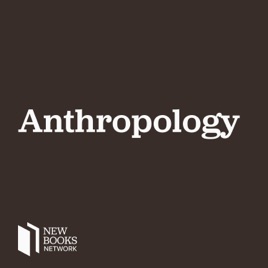
4.2
40
1055
New Books in Anthropology
New Books Network

4.5
70
100
Play Therapy Community
Jackie Flynn, EMDRIA Approved Consultant
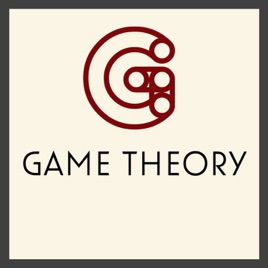
4.6
27
106
Game Theory
Game Theory

4.4
25
91
洪晃|晃然大悟
洪晃|晃然大悟
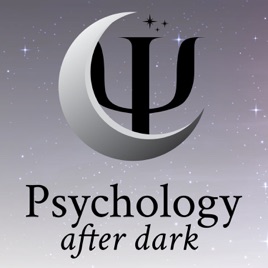
4.8
155
50
Psychology After Dark
Dr. Jessica Micono and Dr. David Morelos

4.8
57
55
Digging a Hole: The Legal Theory Podcast
Digging a Hole Podcast



